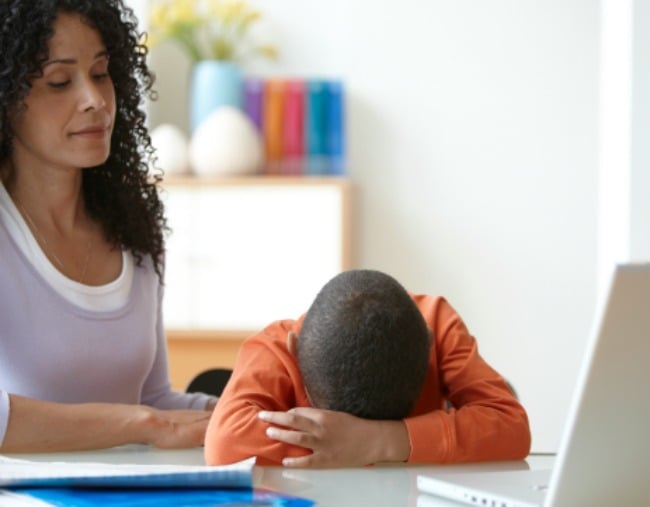Every year, a few weeks into first term, you hear the question. It comes from parents of kids who have just started school and have come home with homework to be done each night. The kids are often just six years old, and they might have a home reader, sight words to be learnt, maybe even a worksheet or two.
“How do you fit it in?”
The question comes most often from working parents who are already struggling to squeeze dinner and bathtime into that small window before bedtime. On social media, other parents are quick to offer suggestions. They get their kids to do homework early in the morning, or over breakfast or dinner. Or maybe they stick up the sight words in rooms around the house for their kids to learn.
But the president of the NSW Teachers’ Federation, Maurie Mulheron, doesn’t agree with parents trying to cram homework into their young kids’ lives.
“Why would a child love learning if they’re going to the toilet and there’s spelling words on the back of the door?” he asks.
Mulheron, who has 40 years’ teaching experience, tells Mamamia that he’s not a fan of homework, full stop.
“I think it’s largely a waste of time,” he says. “There’s no research that I’ve seen that shows that giving particularly young kids additional homework has any beneficial impact on their learning outcomes. In fact, in many ways it could actually be discouraging.”
Obviously, students in the senior years of high school need to do homework, and there are some children who need one-on-one help in certain areas. But apart from that, Mulheron says there are already enough hours in the school day.
“Our kids spend a lot longer in school than other countries. I don’t know why we need to be giving them extra work at home.”



Top Comments
I use this app www.kidscommission.com to manage my Children's homework .With this app managing children’s activities and chores, just became a whole lot easier and more enjoyable